I recently downloaded the stm32 app for MCU search and found out that for example STM32F429 has "NO" in "USB Device" peripheral, while it says "YES" in "USB OTG FS" and "USB OTG HS". Which is quite surprising since STM32F429 is fully functional as USB Device, i.e. it supports all the libraries and USB classes.
Some other MCUs have "USB Device" stated in it, eg. STM32L052

Then I tried to check CubeMX and found out that there is USB_Device peripheral in their search(and again STM32F429 does not include it, USB stuff is done through OTG).
It may be quite easy question since I suspect that USB Device simply means the one that does not support OTG, but I am not sure, usually MCUs use OTG anyway(and moreover there is only one library, so why state "NO" in USB peripheral). I couldn't find information about it in google or in CubeMX documentation.
I am not really concerned much about it since USB OTG HS seems to work OK with the library, but I'm wondering about terminology.
I understand that probably ST forum is a better place for this question, but many topics there are just don't get answered or answered after 2 years have past. :)
Thanks.